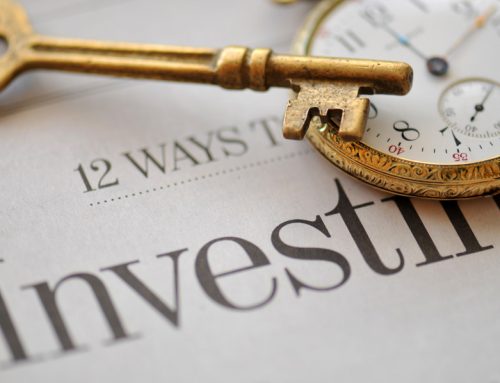3 (or 4) Steps to taking control of your financial investment decisions.
This will be the first in a small series of articles for folks like me who generally left the financial investment decisions to others, had too little finances to worry about (much less follow various markets closely), or who have been badly burned by various investments in the past. As I am an amateur investor, just now beginning to look at what I have, please remember that for detailed and expert advice, you need to both educate yourself in your own specific needs and goals and you need to find an expert in whom you have trust. Having said that, let’s get started with the ABCs.
We have all lived through the hyperinflation of the late 1970s and a couple of serious market crashes in the past 35 or so years. Those events wiped out the savings of a number of us (me included) and such events may recur. So what do we do to weather them, now that we don’t have the luxury of several years to reinvest and recoup losses?
- I recommend that the first thing is to start an emergency cash fund of enough money to cover six months’ expenses. This includes everything from house payments, taxes, household expenses, food, automobile expenses, insurance, healthcare, etc. If you say you have no idea of what those expenses are, there is a first, first thing for you and that is to research your credit card bills and your check book for the last 12 months and find out exactly what you spend your money on.Maybe you put this emergency cash fund in a savings account or similar low risk investment and maybe you keep a little of it in a safe in your home. Wherever you put it, it should be easily accessible on an instant’s notice. Once you have this in place you can breathe easier knowing you are not at the mercy of losing your job or government politics that affect your pension.
- The second step is to pay off all your debts. This includes, especially, those high interest debts like credit cards or other usurious loans. But it includes paying off your auto loans and home mortgage as well.Once these are paid off you can use the interest you have been paying everyone else, on investments whose returns benefit you and not your lenders.
- The third step is to make sure that you have adequate insurance in all the important areas of your life including your home, auto, health, long-term care, disability, life, business and any other policies you hold.Take a look at each of these and you may need to either add coverage in some areas (for instance you may have recently purchased a work of art for your home and need to add it to your home policy) or you may want to decrease or drop other coverages (maybe you took out an insurance policy to cover the mortgage on your home, but now that mortgage is paid off or the principal greatly reduced and you no longer need that policy).
Now that you have enough emergency cash to survive a financial calamity, are free of debt, and are paying out no more than what you need to in insurance, we can talk briefly about investments. I have to admit that the few forays I have made into direct investments each ended in a spectacular wipeout for me. I think I have fallen victim to every variation of loss available from fraud to market collapse, to just poor judgment, and too little research. So now I tend to look for an advisor I trust and whose track record over the past 10 years is solid growth that outpaces inflation.
But maybe you are also a victim of losses over your lifetime and are asking whether you should invest at all. You can certainly leave your money at the bank in savings accounts, interest paying checking accounts, or even Certificates of Deposit. But before you put all of your nest egg in those baskets, know that the interest paid on each of those is significantly less that the inflation rate. So while your investment in these is relatively safe, you are losing financial ground to the rate of inflation.
Investments are a hedge against the inflation that will eat away at your finances if they are all in places that pay less than the current rate of inflation. Investing should be a combination of areas of little or no risk up to the level of risk you are willing to take.
When investing there are a couple of truisms you need to ALWAYS keep in mind. The first is that “if it seems too good to be true, it probably is”. In the United States we have recent memories of various Ponzi schemes lead by Bernie Madoff. The rate of return for some of these schemes was over 50% and folks, nobody does that well in the stock market.
The second truism is that reward (return on investment) increases directly with the risk involved. If you are looking for a high rate of return on your investment you must be prepared to risk a significant or complete loss of that investment.
Okay, that’s enough of Investment ABCs for this article. In the future I’ll be introducing you to what various terms mean, what your investments might look like (what brokers call asset allocation), the differences between stocks, bonds and mutual funds, and anything else that might help you and me have a comfortable harvest.
What does all the terminology mean? Find out in Financial investment ABCs – Terminology.








